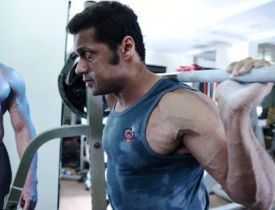Description
Course Name: Diploma in Body Building
Course Id: DBB/Q1001.
Education Qualification: 10th Pass.
Duration: 370 Hrs.
How You will Get Diploma Certificate:
Step 1- Select your Course for Certification.
Step 2- Click on Enroll Now.
Step 3- Proceed to Enroll Now.
Step 4- Fill Your Billing Details and Proceed to Pay.
Step 5- You Will be Redirected to Payment Gateway, Pay Course and Exam Fee by Following Options.
Card(Debit/Credit), Wallet, Paytm, Net banking, UPI and Google pay.
Step 6- After Payment You will receive Study Material on your email id.
Step 7- After Completion of Course Study give Online Examination.
Step 8- After Online Examination you will get Diploma Certificate soft copy(Scan Copy) and Hard Copy(Original With Seal and Sign).
Step 9- After Certification you will receive Prospect Job Opportunities as per your Interest Area.
Online Examination Detail:
- Duration- 120 minutes.
- No. of Questions- 60. (Multiple Choice Questions).
- 10 Questions from each module, each carry 10 marks.
- Maximum Marks- 600, Passing Marks- 40%.
- There is no negative marking in this module.
| How Students will be Graded: | ||
| S.No. | Marks | Grade |
| 1 | 91-100 | O (Outstanding) |
| 2 | 81-90 | A (Excellent) |
| 3 | 71-80 | A (Very Good) |
| 4 | 61-70 | B (Good) |
| 5 | 51-60 | C (Average) |
| 6 | 41-50 | P (Pass) |
| 7 | 0-40 | F (Fail) |
Benefits of Certification:
- Government Authorized Assessment Agency Certification.
- Certificate Valid for Lifetime.
- Lifetime Verification of Certificate.
- Free Job Assistance as per your Interest Area.
Syllabus
Diploma in Body Building
Building a solid foundation
Primary versus Secondary Sources, Scholarly Versus Popular Sources, Identify the Appropriate Databases to Search, types of scholarly works, Other Types of Scholarly Work, Strategies to identify and find past search, identify the appropriate databases to search, conducting the data base search, Communication and Mass Media Complete, Criminal Justice Periodical Index, ocial Sciences Full Text, Search Relevant Journals, What About Google Scholar and Other Internet Searches?
Philosophy of bodybuilding
Understand how the principles of muscle anatomy, kinesiology, and biomechanics apply to program design, Muscle Anatomy, Biomechanics, and Kinesiology, Foundational Exercises, Exercise Basics, Bands and Chains, Aerobic Training, Flexibility Training, Testing and Evaluation, Periodization Strategies, Advanced Programming Strategies, Muscle Shaping, Nutrition and Supplementation, Ergogenic Aids, Recovery, Injury Prevention, Bodybuilding Psychology, Final Examination.
Planning for growth
What is Expertise? Increase Safety Awareness, Develop Your Abilities to Supervise Strength Training and Conditioning Activities, An Overview of Strength Training and Conditioning, Principles of Training, Overview of Energy Systems, Conclusion, How Do We Organize Training? Training Design Terminology, Annual Plan, Training Lesson, Program, Basics of Program Design Decisions, Training Load Prescriptions, Rules for Exercise Selection and Prescription.
Exercise and techniques
Structure, Composition, Types and Functioning of muscles-Types of muscle exercises-endurance, resistance and flexibility and their effect on the composition and strength of muscle, -Exercise related Muscle injuries -Adaptation to exercise-causes & concerns -Markers of muscle fitness -Physiology of Cardiovascular System-Effect of exercise- Markers of cardiovascular fitness- Effect of Exercise training on Cardiovascular fitness- Role of exercise in the diseases of CV system, Physiology of respiration.
Essential bodybuilding nutrition
Meats, poultry and fish: Sirloin steak, ground beef, pork tenderloin, venison, chicken breast, salmon, tilapia and cod Dairy: Yogurt, cottage cheese, low-fat milk and cheese Grains: Bread, cereal, crackers, oatmeal, quinoa, popcorn and rice Understanding Macrobolic Nutrition Carbohydrates—Don’t Count Them Out Protein—Choosing the Right Building Blocks Fat—It Is Essential! Water—The Nutritional Paradox Macrobolic Meals to Muscle Mass Guide to Estimating Caloric Requirements.
Positive thinking and visualisation
Explain the positive psychology, Understand brain hemispheres and how the mind works, Learn human behaviours and different types of thinking, Create a roadmap for success with a result-oriented action plan, Detect negative thinkings and the common negative thought patterns, Understand the internal and external causes of negative thinking, Manage the thoughts of your mind and your conversation.

